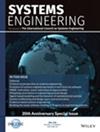Predictive maintenance analytics and implementation for aircraft: Challenges and opportunities
IF 1.6
3区 工程技术
Q4 ENGINEERING, INDUSTRIAL
引用次数: 3
Abstract
The increase in available data from sensors embedded in industrial equipment has led to a recent rise in the use of industrial predictive maintenance. In the aircraft industry, predictive maintenance has become an essential tool for optimizing maintenance schedules, reducing aircraft downtime, and identifying unexpected faults. Despite this, there is currently no comprehensive survey of predictive maintenance applications and techniques solely devoted to the aircraft manufacturing industry. This article is an in‐depth state‐of‐the‐art systematic literature review of the different data types, applications, projects, and opportunities for predictive maintenance in this industry. The goal of this review is to identify, and highlight the challenges and opportunities for future research in this field. This review found that the current focus of research is too biased towards aircraft engines due to a lack of publicly available data sets, and that greater automation is an important step to optimize aircraft maintenance to its full potential.飞机预测性维修分析与实施:挑战与机遇
来自嵌入工业设备的传感器的可用数据的增加导致了最近工业预测性维护的使用增加。在飞机行业,预测性维修已成为优化维修计划、减少飞机停机时间和识别意外故障的重要工具。尽管如此,目前还没有专门针对飞机制造业的预测性维修应用和技术的全面调查。本文对该行业预测性维护的不同数据类型、应用、项目和机会进行了深入的系统文献综述。本综述的目的是确定并强调该领域未来研究的挑战和机遇。这篇综述发现,由于缺乏公开的数据集,目前的研究重点过于偏向于飞机发动机,而更大的自动化是充分优化飞机维护潜力的重要一步。
本文章由计算机程序翻译,如有差异,请以英文原文为准。
求助全文
约1分钟内获得全文
求助全文
来源期刊

Systems Engineering
工程技术-工程:工业
CiteScore
5.10
自引率
20.00%
发文量
0
审稿时长
6 months
期刊介绍:
Systems Engineering is a discipline whose responsibility it is to create and operate technologically enabled systems that satisfy stakeholder needs throughout their life cycle. Systems engineers reduce ambiguity by clearly defining stakeholder needs and customer requirements, they focus creativity by developing a system’s architecture and design and they manage the system’s complexity over time. Considerations taken into account by systems engineers include, among others, quality, cost and schedule, risk and opportunity under uncertainty, manufacturing and realization, performance and safety during operations, training and support, as well as disposal and recycling at the end of life. The journal welcomes original submissions in the field of Systems Engineering as defined above, but also encourages contributions that take an even broader perspective including the design and operation of systems-of-systems, the application of Systems Engineering to enterprises and complex socio-technical systems, the identification, selection and development of systems engineers as well as the evolution of systems and systems-of-systems over their entire lifecycle.
Systems Engineering integrates all the disciplines and specialty groups into a coordinated team effort forming a structured development process that proceeds from concept to realization to operation. Increasingly important topics in Systems Engineering include the role of executable languages and models of systems, the concurrent use of physical and virtual prototyping, as well as the deployment of agile processes. Systems Engineering considers both the business and the technical needs of all stakeholders with the goal of providing a quality product that meets the user needs. Systems Engineering may be applied not only to products and services in the private sector but also to public infrastructures and socio-technical systems whose precise boundaries are often challenging to define.
 求助内容:
求助内容: 应助结果提醒方式:
应助结果提醒方式:


